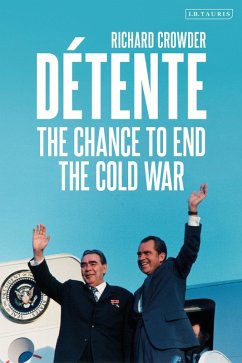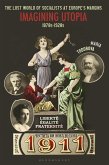Between 1968 and 1975, there was a subtle thawing of relations between East and West, for which Brezhnev coined the name Détente, and - perhaps - a chance to end the Cold War. The leaders of the United States and the Soviet Union, Richard Nixon and Leonid Brezhnev, hoped to forge a new relationship between East and West.
Yet, the greatest changes of the era took place outside the sphere of international diplomacy. The 1960s brought social collision across the world, from the anti-war protests in America to the student demonstrations on the streets of Paris, and Mao Zedong's Red Guards in China. A new generation, whom advertising executives dubbed the baby-boomers, brought new attitudes to towards sex, gender, race, the environment and religion.
In this book, Richard Crowder explores the years of Détente, and introduces us to the key players of the era, whose stories form the narrative of this book.
Yet, the greatest changes of the era took place outside the sphere of international diplomacy. The 1960s brought social collision across the world, from the anti-war protests in America to the student demonstrations on the streets of Paris, and Mao Zedong's Red Guards in China. A new generation, whom advertising executives dubbed the baby-boomers, brought new attitudes to towards sex, gender, race, the environment and religion.
In this book, Richard Crowder explores the years of Détente, and introduces us to the key players of the era, whose stories form the narrative of this book.









